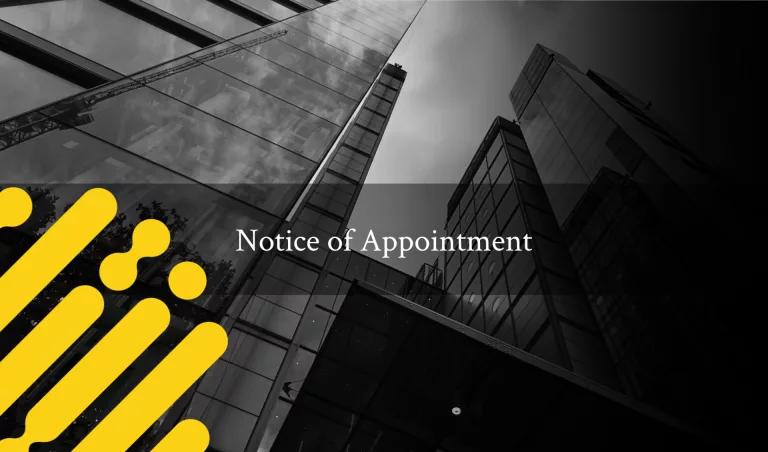Often, we as individuals, leaders, and organizations feel that we have competing goals. However, in this time of the COVID-19 pandemic, we have but one common objective – to successfully navigate through a crisis and get to the other side together. The challenges and uncertainty that lie ahead of us will necessarily test our strength, courage, resilience, and adaptivity. Although we know that this time will pass, our current reality demands that we adjust to a new “normal.”
What leaders are currently being asked to do is unprecedented. As you experience your own business and personal challenges, you are being asked to step up in ways you could have never before imagined. You are being asked to manage your own preoccupations, worries and stress while playing a key role in reassuring your team’s anxiety. To remain focused amidst all the distractions. To foster social proximity when everyone is at a distance. And to maintain productivity and organizational continuity and sustainability in the turmoil.
At SPB, our passion has always been to bring the human experience into organizations as leadership without connection does not exist. Our wish is to not only accompany leaders in successfully navigating through this crisis, but to bring out their true leadership qualities in doing so.
This crisis will pass, and as we adjust to this new reality, we suggest reflecting upon these two pivotal questions:
- What kind of leader do you want to be as you navigate through this challenge?
- What impact and contribution do you want to have?
Here are some of our suggestions for leaders to be mindful of:
- Be intentional and purposeful in how you show up as a leader
A crisis calls for quick and immediate action, which can lead to reflexive, short-term decisions without direction. It is the clarity of your own purpose, goals and values that serves as the foundation to ground yourself in an otherwise unstable time of radical change. Having clear leadership ideals, values, and behaviours you want to embody is crucial for filtering how you respond to information from your environment and for guiding your decision-making in leading your team. This is an opportunity to not only make the right decisions, but to be a role model for others.
Here are three questions to clarify your ideal self and the values you want to embody as you navigate this situation:
- If I were to look back at this situation two years from now and were proud of how I handled this, what would I have done?
- What would I hear people saying about me?
- What values do I want to honour right now and what actions can I take that align with those values?
- Manage your emotional, physical, and mental energy
As the context is rapidly changing and new uncertainties emerge, some may find themselves quickly succumbing to anxiety, stress, and burn out, which can ultimately result in costly and counterproductive decisions and damaged relationships. To thrive within this context, you need to be aware of and regulate your stress responses as well as your physical and cognitive capacity.
Here are just a couple of steps you can take to better manage yourself:
- Before jumping into a task, ask yourself: “What do I need to do to be present?”
- Acknowledge the feelings as they arise by stating “I notice that I’m feeling anxious right now” and allow the experience of that emotion.
- Eat well, exercise and sleep enough.
- Practice breathing techniques. Article: Can You Reduce Anxiety and Stress by the Way You Breathe?
- Communicate a clear, inspiring vision to your team
As the crisis evolves and we are constantly bombarded with new information, it can be easy for us and our team to lose direction and spirit. As leaders, you need to be intentional in communicating a clear vision of what it will mean to be on the other side of the outbreak and creating a perspective that allows your team to remain optimistic despite the feelings of fear, threat, and anxiety they are likely experiencing.
Here are two considerations as you craft your vision:
- A strong vision does not simply identify what needs to be done; it connects individual actions to a broader picture. How does your vision speak to the organization’s well-being, social responsibility, and ability to recreate prosperity for the global community?
- An inspiring vision is not simply what we say, but how we say it. What tone will you use and what emotions do you want to evoke in your team? A tone of empathy and hope can call up feelings of safety, inspiration, and optimism.
- Create engagement and connection within your team
As you grapple with emerging developments through this pandemic, you may be tempted to connect with your team only to communicate important updates, next steps, or to realign priorities. However, it is critical to regularly reach out to your team to take a pulse check on how they are managing themselves to ensure their well-being and to sustain engagement. If you want your team to give the best of themselves, you need to be mindful of how you communicate by conveying the level of compassion, empathy, and optimism that this situation calls for. Particularly, as your team works virtually, it is vital that you create points of connection to foster engagement and unity.
Here are two actions that can be taken to create opportunities for connection:
- Acknowledge the range of emotions your team may be feeling to normalize the experience and reduce the sense of isolation. Validate their emotions and make sure they feel heard before jumping to problem-solving mode or falling into the trap of trying to make light of the situation or seeming disconnected by being overly positive.
- Create regular touch points with your team to allow for informal conversations, much like your team would do in the office. Although your team may be physically disconnected, more than ever, they need to connect socially and emotionally.
- Be kind to yourself and others
Most individuals identify with having an internal self-critic that imposes judgment and pressure to “be better” and “do better.” We need to remind ourselves that what is happening in the broader global community, within our organization, and in our personal life is not “normal” – so be kind and give yourself and others permission to be imperfect.
Here are some strategies you can use to practice self-compassion:
- Acknowledging and validating the difficulty and challenges apparent within this evolving period is an important first step in practicing self-compassion.
- Be mindful of positive emotions and experiences that emerge in your day-to-day. What small win can you celebrate with your team? What is one thing that you appreciate more as a result of this experience? What is one thing you did to practice self-care today? What is one way in which you had a positive impact, even if small, on someone else today?
- Try to adopt a ‘growth mindset’ and focus on what you are learning and how you are growing as a leader; not on whether you are performing perfectly on every challenge that is being thrown your way. Ask yourself: what is one thing I learned today and will take into my tomorrow?
Adaptive Performance
Leaders have what is needed to lead through this critical period. Although you may not be able to influence the global events that are unfolding, you can control how you show up as a leader while being intentional about creating a sense of optimism, compassion, and direction for yourself and others. We encourage you to push your capabilities and bring the “we” to the forefront while taking care and being aware of the “me” – you as a leader.
At SPB, we use our Adaptive Performance approach, grounded in psychology and human adaptation, to enable leaders to manage change, complexity, and ambiguous situations like the one we find ourselves in. Our approach strives to enable leaders to build resilience and adaptivity so they can successfully navigate through a crisis while showing up as the leader they aspire to be. In the current context, we have leveraged this approach through virtual individual and group coaching as well as a 4-week online leadership program so that leaders are able to:
- Define a clear vision of their identity and the leader they aspire to be, grounded in values and purpose in order to set the stage for clarity of action, effective decision-making, and sustained change.
- Develop increased awareness and understanding of their impact on others and the broader context in which they work.
- Develop strategies to better manage their emotions, energy and health and to operate mindfully and with intention.
- Thrive, adapt their actions to the changing context and create the impact they seek in order to build inspiring and productive work environments despite the uncertainty and complexity of the broader context.
One of my favourite leaders in psychology – Steven Hayes – recently wrote about “The Ordinary Corona Hero”. There will be many heroes when we all write our story following this pandemic. If we can all be a hero in our own small way – drawing upon our strengths, digging deep to take care of ourselves, and showing others great compassion – we can make this process less painful and emerge from it with immeasurable strength. As a society, as a leader, as a person.
I’ve learned that people will forget what you said, people will forget what you did,
but people will never forget how you made them feel.
– Maya Angelou


